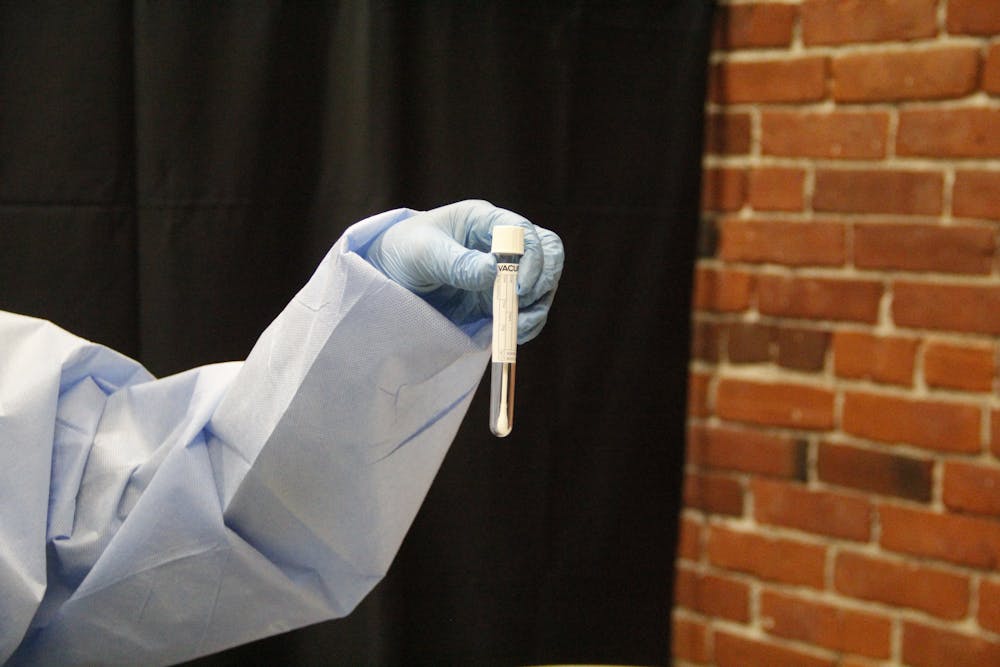Sixty-six students and 45 employees reported positive COVID-19 test results on campus from Jan. 20 to 26, and approximately 36 students are currently in isolation in on-campus or designated off-campus housing, according to a Today@Brown announcement on Jan. 28.
Executive Vice President for Planning and Policy Russell Carey ’91 MA’06 said the number of positive test results in the first week students returned from break was “quite a bit lower” compared to other institutions.
“We were certainly preparing for hundreds of positive test results, so to have less than 100 is excellent,” Carey said. “The next week is really going to be very instructive” to see if the number of positive cases increases, he added.
Students who are isolating on campus are currently using Andrews Dining Hall to pick up meals and other essential items, The Herald previously reported. The University decided to reserve Andrews for students in isolation since it was “preparing for hundreds, if not 1000 students to report positive test results,” Carey said.
“If that had happened, or if it (does happen), those people … will need to get food in a way that minimizes their contact with others,” he added. But, so far the number of students isolating is “well below what we have capacity for.”
Still, it is “certainly possible” that students who test positive once can test positive again, Carey said. “The chances get reduced, but certainly we’ve had experience with people who’ve had COVID-19 more than once, so everybody should continue to treat it seriously.”
Once a student who contracts COVID-19 tests negative on their fifth day of isolation and is released, they should still practice “stricter” mask-wearing for days six through 10, Carey explained.
“People who’ve tested positive need to be very careful and be really mindful of the impact that they can have on others,” he said. “Continuing to exercise common sense, and particularly to be really scrupulous about mask wearing is very important.”
Students will be able to pick up two more rapid antigen tests Monday, which they will use to satisfy the testing requirement for the upcoming week. For the next two Mondays, students will be able to pick up two more tests each week, according to the announcement.
“By the time we get to mid-February, hopefully we’ll be in a better place and can reassess what’s necessary (in terms of the testing requirement),” Carey said.
For graduate and medical students for whom testing is optional, Carey said that about “half or so have actually picked up tests.”
Students on the University insurance plan can also buy antigen tests and get them reimbursed, similar to the reimbursement model for all insurance plans recently mandated by the federal government on Jan. 15.
Carey said he would “promote” the reimbursement model for employees, as students are already required to test weekly through the University, but “anybody can take advantage of it.”
The University will be hosting another COVID-19 booster clinic offering the Pfizer and Moderna vaccines in the multipurpose room of the Health and Wellness Center Feb. 1 from 11 a.m. to 4 p.m., according to a Today@Brown announcement on Jan. 27. Students can register for the clinic in order to receive a booster shot.
Gabriella was a Science & Research editor at The Herald.





